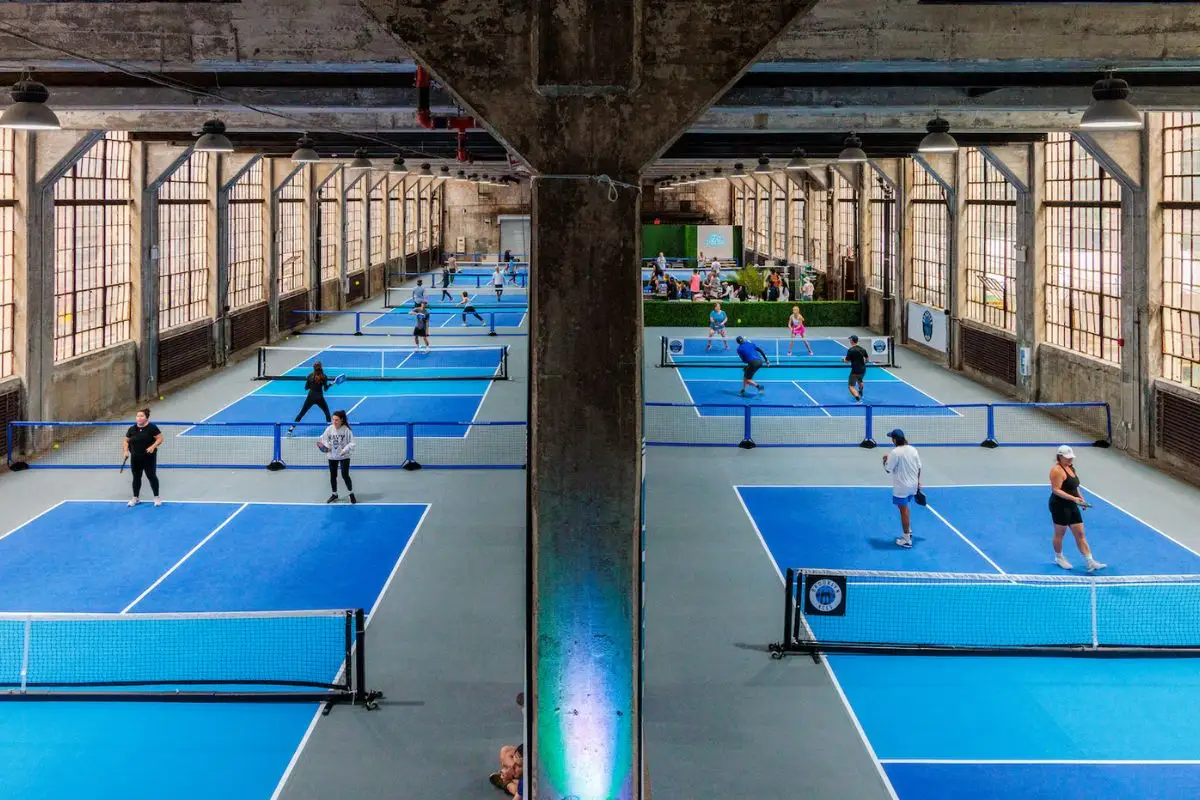Pickleball Growth in South Florida: Pickleball, a sport that skyrocketed in popularity during the COVID-19 pandemic, continues to shape South Florida’s recreational landscape. What was once a niche activity played on repurposed tennis courts has now evolved into a booming industry with dedicated spaces designed for pickleball enthusiasts of all ages. The demand for more courts is growing rapidly, and developers, both public and private, are responding with high-end facilities to cater to the increasing number of players.
At the heart of this movement is the rise of pop-up courts, such as those managed by CityPickle in West Palm Beach, and the development of permanent structures like The Fort in Fort Lauderdale. The Fort, a partnership between the City of Fort Lauderdale and pickleball developers, will offer 43 courts, including a stadium for professional matches, and is set to be a game-changer for both local players and the professional circuit. The wave of pickleball court construction in South Florida represents not just the sport’s surge in popularity but also the way it has become a central part of community life.
The Expanding Infrastructure of Pickleball
As pickleball’s popularity has grown, the infrastructure to support it has rapidly expanded. South Florida, in particular, has seen a flurry of activity. CityPickle’s temporary courts in West Palm Beach, for example, occupy a vacant lot that once housed a movie theater and restaurants. The founders, Mary Cannon and Erica Desail, envision a future where pickleball is integrated into communities not just as a sport, but as a lifestyle. Their pop-up courts are designed not only for serious players but to attract those curious about the game, offering a welcoming environment for beginners.
In addition to these temporary courts, permanent facilities are popping up across the region. The Fort, opening in Fort Lauderdale next month, will be the largest of its kind, offering a state-of-the-art space for both recreational and competitive play. The facility’s extensive offerings include covered courts, food services, and even a dedicated space for professional tournaments. As pickleball moves from niche to mainstream, these developments reflect the sport’s ongoing evolution into a major player in South Florida’s recreational landscape.
The Business of Pickleball: Memberships, Pricing, and Accessibility
While the growth of pickleball in South Florida is undeniable, it also brings with it challenges related to access and cost. With the surge in court availability, developers have introduced a variety of membership and pricing models to balance affordability with operational costs. For example, CityPickle charges $25 for two hours of open play, and private court rentals can reach up to $80 per hour. The Fort in Fort Lauderdale will offer memberships starting at $139 per month, but these still come with additional fees for private court bookings.
These prices reflect the business side of pickleball’s expansion. As more facilities open, players can expect different pricing models—whether through seasonal memberships, pay-per-play options, or resident discounts at municipal courts. The rising popularity of indoor courts, which offer a reprieve from South Florida’s harsh summer temperatures, may also drive up costs. As the sport becomes more integrated into local communities, these pricing structures will play a crucial role in determining how accessible the sport remains for all players.
News in Brief: Pickleball Growth in South Florida
Pickleball, which surged in popularity during the COVID-19 pandemic, is rapidly transforming South Florida’s recreational landscape. The region is experiencing an influx of new facilities, including pop-up courts like those at CityPickle in West Palm Beach and permanent complexes like The Fort in Fort Lauderdale. The Fort will be a state-of-the-art venue with 43 courts and a professional stadium, marking a significant leap for the sport. With growing demand for pickleball courts, developers are introducing diverse pricing models, from memberships to pay-per-play options, making pickleball increasingly accessible while shaping it as a central community activity.
ALSO READ: New Pickleball Courts Added to Creekside Park in Farmington to Boost Outdoor Fun


